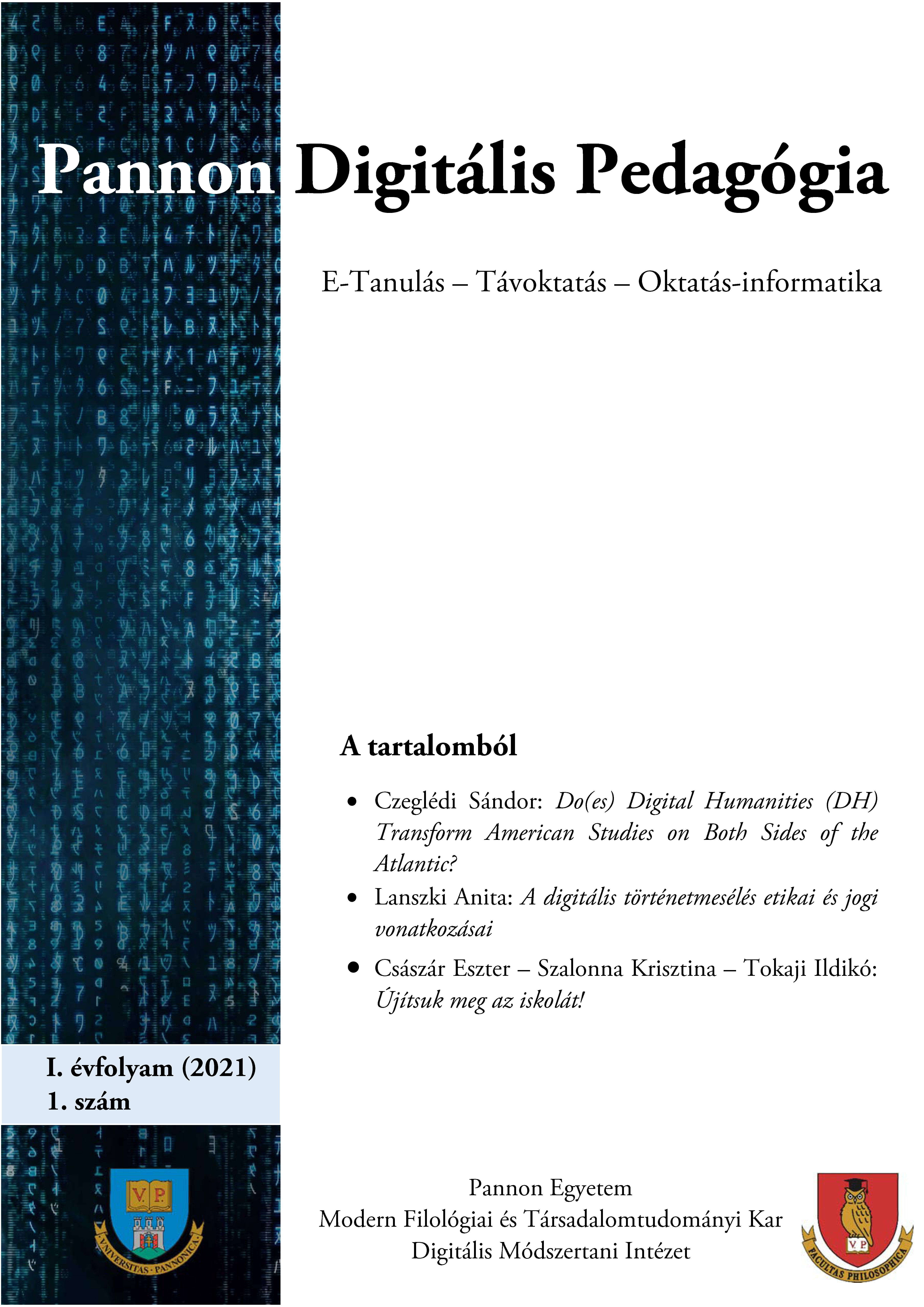Az oktató személyisége és a paradigmaváltás kihívásai
A pedagógus Bálint-csoport, mint erőforrás
DOI:
https://doi.org/10.56665/PADIPE.2021.1.5Keywords:
tanár, kihívások, kiégés, Bálint-csoportAbstract
Digital pedagogy and online teaching bring about a paradigm change which transforms the social and cultural dynamics of education and faces the educator with a wide array of challenges. The changes impact the content, methodology and interpersonal conduct of education and require the teacher to form and develop new competences. This is a particularly testing task for the Hungarian educators, many of whom have been experiencing deteriorating mental health. Years before the onset of the current pandemic, experts began to emphasise the phenomenon of teacher burnout, pointing out that teachers’ mental health is exposed to an exceptionally high level of pressure and that the teaching population is particularly vulnerable to burnout. Apparently, burnout involves teachers in a vicious circle: the causes include features and practices of a dedicated teacher, however, the syndrome itself undermines the teacher’s professional self esteem and the efficacy of her work. As agents and motors of the sustainable development of digital education teachers are expected to enhance their expertise and potential, and continuously improve their professional selves. This will be unachievable without simultaneously taking care of teachers’ mental health. It is only a mentally healthy teacher that is capable of maintaining and preserving her personal integrity under the constant force of such challenges. Obviously, this cannot be accomplished alone. My experience shows that teachers’ Bálint-groups can provide a source of power. I claim that regular and continuous participation in case-processing Bálint-work empowers the teacher to cope with professional issues that are risk factors for burnout. In what follows I present and assess the operation and effects of a teachers’ Bálint group. In conclusion I recommend the integration of case processing Bálint-work in Hungarian teacher training as an empirical, hands-on component.
References
Antalka Ágota (2020). Modern világunk népbetegsége – A kiégés. Budapest: Mentor Kiadó.
Antalka Ágota (2015). Pedagógusok kiégése. https://docplayer.hu/1859326-Antalka-agota-pedagogusok-kiegese.html (letöltve: 2020. augusztus 12).
Bálint Mihály (1989). Az orvos, a betege és a betegség. Budapest: Animula.
Dobó Katalin (2018). A Bálint-csoport szerepe a pszichoszomatikus betegek ellátásában (prezentáció). Budapest: IBS Labirintus Panoráma Medical Center. 2018. május 4.
Elder, Andrew (2016). A Bálint-csoportvezetés: a vezetői fejlődés fogalmi alapjai és kerete (fordította Kovács Diána). 4th IBF Leadership Conference, Warsaw, 2016.
Freudenberg, Herbert J. (1974). Staff Burnout. Journal of Social Issues, 30 (1974). 159–175.
Harrach Andor (2010). A Bálint-módszer fejlődéstörténete. Csoportok, mozgalom, perspektívák. Thalassa, 21 (2010/3). 29-50.
Hrastinski, Stefan (2008). Asynchronous and synchronous e-learning. Educause Quarterly, 31 (2008/4). 51–55.
Kafry, Ditsa – Aroson, Elliot (1981). Work–Psychological aspects. Burn out. New York: Free Press. 223–224.
Makai Gábor (2018). Pedagógusok küzdelme – A kiégés elleni harc. https://bebikkicsikesnagyok.hu (letöltve: 2020. augusztus 10).
Moore, Michael G. – Kearsley, Greg (2012). Distance education: A systems view of online learning (3rd ed.). Belmont, CA: Wadsworth.
Schüttler Tamás (2001). A pedagógiai mentálhigiéné a nevelés egy új értelmezése – beszélgetés a pedagógiai mentálhigiénéről. Új Pedagógiai Szemle, 2001. május. https://ofi.oh.gov.hu (letöltve: 2020. augusztus 10).
Sun, Anna – Chen, Xiufang (2016). Online education and its effective practice: A research review. Journal of Information Technology Education: Research, 15 (2016). 157-190. http://www.informingscience.org/Publications/3502. (letöltve: 2021. július 11).
Downloads
Published
Versions
- 2023-01-17 (2)
- 2021-09-10 (1)

